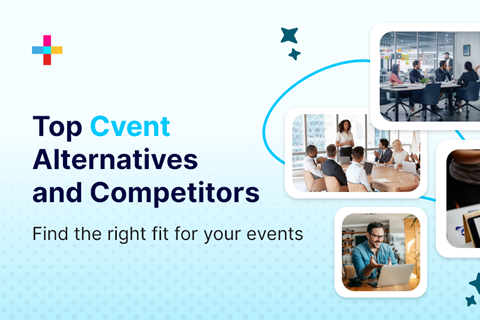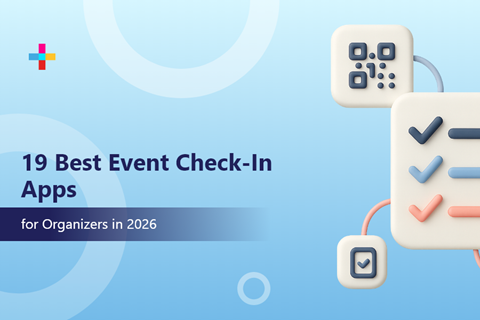

Think about your local coffee shop. You walk in on your way to work, and the barista not only knows your name but also remembers your usual coffee order. It’s this personal touch that makes you bypass the large coffee chains you walk past every day and go out of your way to visit this friendly, familiar place.
Micro-events have a similar effect. They give you the opportunity to create one-on-one connections with your audience and let your attendees really get to know your brand on a more personal level. And just like you keep popping into that little coffee shop, your event guests become your ‘regulars’, revisiting your brand as a welcoming space where they can network, learn, and share knowledge and ideas.
What Is a Micro Event?
Think of a micro event like a cozy get-together rather than a big, bustling party. It's all about bringing a specific group of people together for a particular reason or experience. It acts as a gathering of like-minded folks in a more intimate setting. Webinars, quick networking sessions, and live broadcasts are all part of the micro event scene.
Why Go Micro?
Let's have a quick look at why going small could be a great move.
1. Cost-Effective
The costs involved in running big events can quickly add up, and not everyone has unlimited resources to host those all-singing and dancing affairs year-round.
Micro events are generally much kinder on your budget than large-scale ones. You can host them in smaller venues, use word-of-mouth promotion, and a smaller guest list helps to keep costs down.
This means you can potentially afford to run several mini-events throughout the year to keep building stronger connections with your audience, rather than putting all your resources into one big extravaganza.
Consider live-streaming your micro event, or holding it as a hybrid event, to reach a broader audience while keeping costs in check.
2. Targeted Audience
Think of micro-events like a party where you get to hand-pick the guest list.
This means you can focus your efforts on people who are most likely to be excited about what you are offering and genuinely engaged with what you have to share.
3. Community-Building
The more intimate setting of smaller events makes them a great opportunity to build a community around your brand.
With a smaller audience, people often feel more comfortable sharing, networking, and engaging in Q&A sessions.
Types of Micro Events
If you’re starting to think holding micro-events might be a good idea for your business, let’s take a closer look at the different types of events you can explore.
1. Workshops and Training Sessions
We’ve all sat through those tedious large-scale training events before, where you’re squinting to see the presentation and struggling to hear the speaker. Even if you’re genuinely interested in the topic being covered, it can be hard to feel truly engaged or interact with what is being shared.
With a smaller, focused audience, you have the perfect platform for sharing expertise and knowledge. You can easily answer questions throughout the day, dive into topics people would like more information on, and be more spontaneous with the content you cover.
Whether it’s a skills development workshop, sharing industry trends and updates, or an informative training event, your attendees are more likely to leave feeling like they’ve had a genuinely productive day.
2. Pop-Up Shops and Product Demos
While e-commerce is a highly profitable channel for a lot of brands, it’s a fiercely competitive market and it can be hard to communicate what you can offer on a more personal level.
Pop-up shops and product demos give you a great opportunity to physically get your products in front of potential customers.
3. Networking Mixers and Meetups
Love it or hate it, networking is a vital part of building connections and relationships in business. However, while busy, large-scale events can be great for meeting lots of new people, they aren’t always the best environment for having meaningful conversations.
Micro-events bring together like-minded individuals in a smaller, more intimate setting, without having to shout over the crowd to introduce yourself.
4. Launch Parties and Product Launches
Everybody loves a party right? Throwing a launch party for your brand or products can really create a buzz around what you have to offer.
Whether it’s a new product, service, or business venture, a micro-event can be the perfect setting to gather those influencers, loyal customers, and potential clients together and generate a real sense of excitement around your launch.
5. Mini Conferences and Panel Discussions
When you think about attending a conference, you likely think of a grand annual event with hundreds of attendees and a packed schedule of speakers. But you can provide a similarly valuable experience by holding condensed mini-conferences.
You could consider holding several mini-conferences throughout the year, each covering a specific topic or theme, allowing participants to gain valuable knowledge and interact with informative panel discussions.
The Micro Event Playbook
Now that you have some inspiration for the types of micro-events you can organize, let's cover the essentials for making your event a success.
1. Define Your Goals
Before you start planning your event, think about what you are hoping to get out of it. It could be generating leads and driving more sales, establishing yourself as a thought leader within your industry, or building relationships and strengthening customer loyalty.
Whatever your goal, having a clear picture of what you want to achieve will help to guide your decisions when organizing your mini-event.
2. Know Your Audience
You don’t want to invest time and effort into creating a great event only to find that it doesn’t quite hit the mark with your attendees. The type of audience you want to attract will influence how you run your event, the sort of content you cover, and the format you choose to best engage them.
For example, busy professionals might value highly interactive Q&A sessions and plenty of networking opportunities. On the other hand, if you’re appealing to tech enthusiasts, they could be more interested in learning about the latest trends and hearing from industry experts.
The better you get to know your target audience, the more you can curate your event to meet their needs.
3. Streamline Event Registrations
For your event to run smoothly, you want to make it as easy and hassle-free as possible for attendees to secure their spot.
The simplest way to manage this is to use an event registration platform or software. These tools do the hard work for you, they offer customizable forms and automation features that streamline the whole process and reduce the chance of any errors.
4. Use Confirmation Emails
You don’t want to leave people wondering if their registration was successful or not, so make sure you send automated confirmation emails.
You’ll want to include a thank you for their registration, along with any relevant information they’ll need such as the address details and times for your event.
5. Ensure Data Security
Reassure your attendees that their personal information is safe and secure by using data security methods like trusted payment gateways and encrypting any sensitive data.
You’ll also need to make sure you have all the correct GDPR processes in place, especially if you want permission to reach out to them following the event.
6. Automate Follow-Up Communication
In the run-up to the big day, you want to keep your attendees in the loop, remind them that your event is approaching, and build their excitement.
Set up automated emails or consider using a VoIP with SMS service to send out regular text message reminders, event updates, and important information such as session start times.
7. Create Buzz
Once you’ve signed people up for your event, don’t let it drift off their radar. You want your attendees to be excited about what’s coming, so promote your event across social media, email marketing, and word-of-mouth.
You could tease guest speakers, use catchy event pages, or ask your audience to propose questions they’d like to put forward to a panel on the day.
8. Collect Contact Information
Once you’ve put all your hard work into getting people together at your mini-event, make the most of having them there.
Use the opportunity to collect valuable information and contact details through sign-up sheets or business cards. Even if the goal of your event isn’t sales or lead generation, you can make useful contacts and follow up with them after the event to continue building a relationship.
9. Engage During the Event
Don't lurk in the shadows at your own event! While it’s all about bringing people together, you’ll still need to be hands-on during the day as the host.
Get out there and engage with your attendees during the event, make them feel welcome, answer their questions, and facilitate introductions and networking among participants.
10. Follow Up
If you’ve followed the tips in this article, hopefully, your mini event has been a roaring success and you’re already planning the next one. But before you breathe a sigh of relief that it all went well and put your feet up, don’t forget about those important follow-ups.
Think about sending out those follow-ups thank you emails promptly and ask for any feedback that could make your next event even better.
For a more personal touch, you can even use call center outsourcing solutions to conduct post-event surveys and follow-up calls. You might even generate leads and sales by offering post-event promotions or special deals during these conversations.
Growing Your Business with Micro-Events
Micro events might be small in scale, but they can have a big impact.
They’re cost-effective and demand fewer resources, meaning you can run them more regularly. Plus, the more intimate environment makes them the perfect setting for building meaningful connections with your audience.
So go ahead, start planning, and watch your business grow, one small event at a time.

Professional certifications for event planners do more than provide a solid foundation in the field; they offer valuable exposure to the dynamic world of event planning and insights from prominent industry experts.

Choosing the right event management platform is vital for event professionals navigating the growing demand for in person , virtual, and hybrid events. Modern planners need solutions that offer robust features,...

Attendees don't notice good check-in. They only notice bad check-in. And planners know check-in is the first moment where their behind-the-scenes work gets exposed.